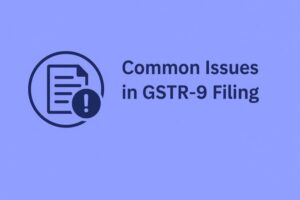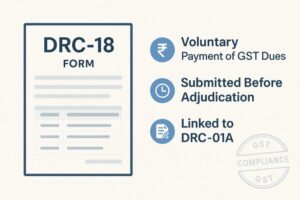GST Registration for Kirana Stores in India
- 19 Sep 25
- 7 mins
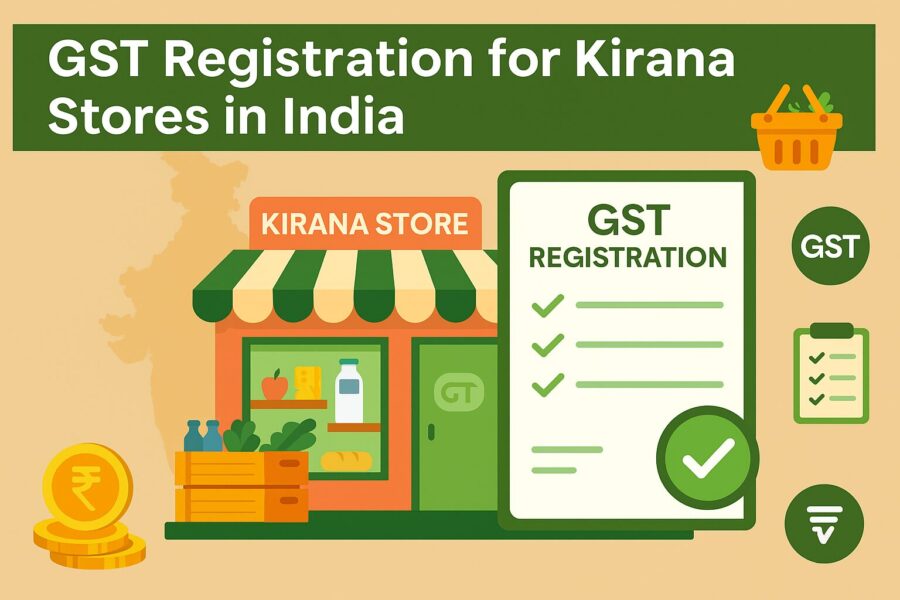
GST Registration for Kirana Stores in India
- What Is GST for a Kirana Store?
- When Do You Need to Have a GST Registration for Your Kirana Store?
- What is GST Registration?
- List of Special Category States According to GST Rules in India?
- List of Documents Required While Getting a GST Registration
- How To Comply with GST Obligations as a Small Shopkeeper?
- Conclusion
Key Takeaways
- Kirana store GST registration becomes mandatory once annual turnover crosses ₹40 lakhs (₹20 lakhs in special category states).
- GST on grocery shops ranges between 0% to 18%, depending on the type of goods sold.
- Voluntary GST registration for small shopkeepers helps claim Input Tax Credit (ITC) and build credibility.
- Documents required for GST registration include PAN card, address proof, and bank account details of the shop owner.
- Filing GST returns for kirana stores ensures compliance, business growth, and eligibility for MSME benefits.
You might wonder, if, like different other running businesses, do kirana stores have to register for GST too? Well, the answer is, yes they need to. Once their annual turnover exceeds the threshold set in the GST Act. Kirana Stores are nothing but your local grocery shops that deal in a variety of items, including household products, food items and daily essentials.
GST registration for Kirana Stores allows shop owners to legally collect tax from their customers and allows them to avail of various GST benefits too.
Further to this blog, we are going to understand whether your kirana store requires GST registration or not, including various other things related to GST and your kirana or grocery store.
What Is GST for a Kirana Store?
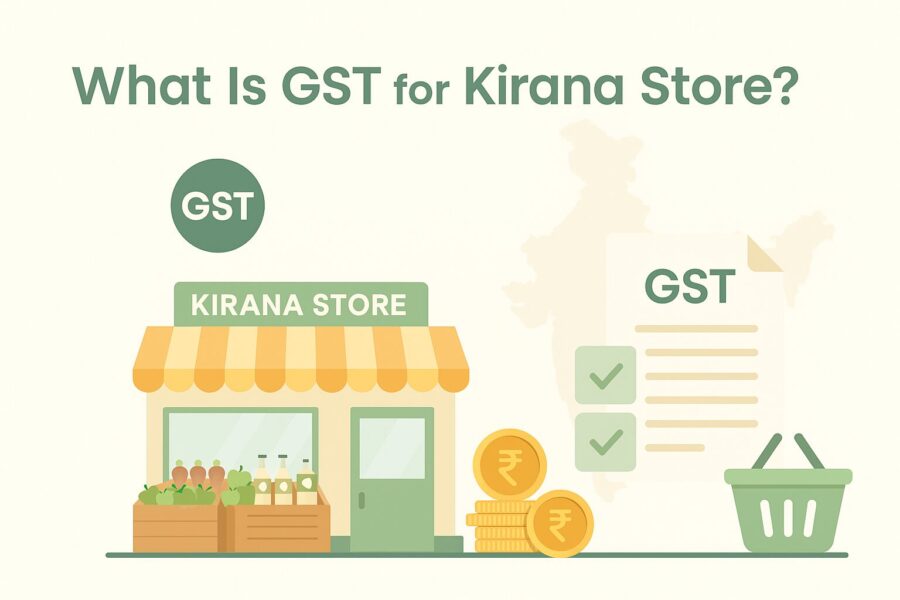
GST, or Goods and Services Tax, is an indirect tax that was introduced in 2017. This one indirect tax replaced an array of indirect taxes like VAT, Service Tax, Excise Duty, etc., which were there in the previous tax regime.
There are various factors that decide the applicability of GST to a kirana store apart from its annual turnover, such as the nature and type of goods they deal with. This has a positive as well as a negative impact of GST on grocery store owners. The GST rates of various items in a grocery store range from 12% to 18%.
High GST rates mostly impact small business owners like Kirana stores, as it becomes a tax burden for them to sell their products at an increased price. Moreover, a shop owner also has to go through a lot of periodic paperwork to file their GST returns and stay compliant.
When Do You Need to Have a GST Registration for Your Kirana Store?
A grocery store owner must have a GST registration for a Kirana store once their annual turnover surpasses the threshold limit of Rs. 40 lakhs in Normal Category States and Rs. 20 lakhs in Special Category States.
Now, once you have a GST registration, it is mandatory for you to pay GST on the supply of goods and services, even if your turnover falls below the threshold in future. Moreover, you will also have to pay GST on inward supplies and on items you buy for your business.
You might also get a voluntary GST registration that will allow you to avail of various benefits, such as eligibility to claim Input Tax Credits and improved business credibility, which will strengthen your authority to access loans and credit for business purposes.
What is GST Registration?
GST registration is a simple online procedure. You just need to enter a list of details that include your company’s name, address and the type of goods or services you offer in your shop.
Once you register using the GST portal, you will receive your very own GSTIN number. You need to enter this number every time you file a return.
List of Special Category States According to GST Rules in India?
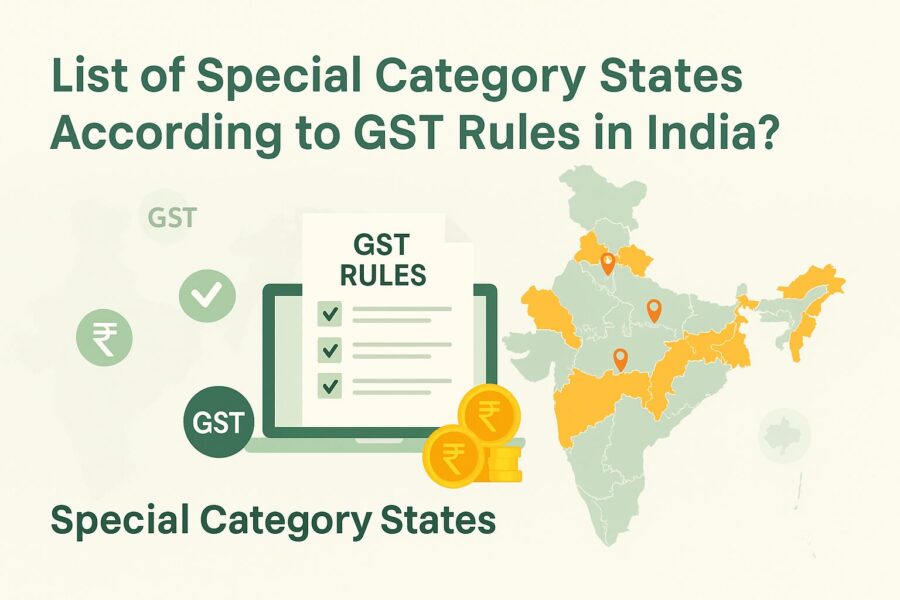
There are some special category states where it is mandatory for grocery shopkeepers to have a GST registration once their annual turnover exceeds Rs. 20 lakhs. These shopkeepers also have to make sure to file their GST returns timely and fulfil other GST payments obligations as required. Here is a list of Special Category States in India.
- Sikkim
- Tripura
- Himachal Pradesh
- Uttarakhand
- Manipur
- Meghalaya
- Mizoram
- Nagaland
- Arunachal Pradesh
- Assam
- Jammu & Kashmir
If you are a grocery shop owner in one of these states, remember your threshold for annual turnover is only Rs. 20 lakhs.
List of Documents Required While Getting a GST Registration
If you are a shop owner who needs to get a GST registration for your grocery shop, read below to get the list of documents you will need during the process:
- Legal identity and address proof of the shop owner.
- PAN Card of the shop owner.
- Shop’s address proof.
- Business or personal bank account number of the shop owner.
How To Comply with GST Obligations as a Small Shopkeeper?
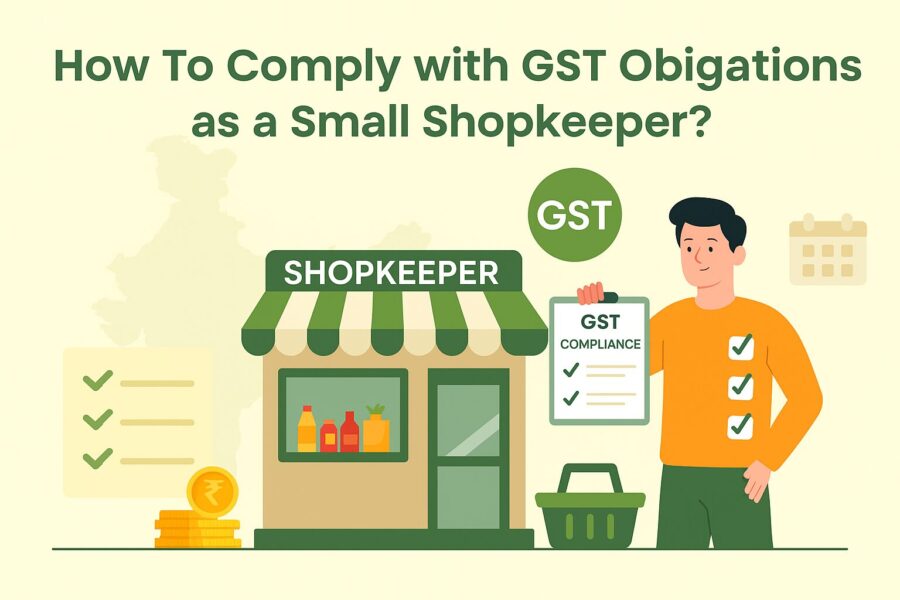
As a GST-registered business owner, you need to file 2 monthly returns and 1 annual return. It is difficult for most small business owners to stay compliant with GST return filing obligations and run their businesses all at the same time with limited resources.
Moreover, small shop owners can also get MSME Registration. It allows them to avail of online bookkeeping and accounting services. They also offer invoice generator tools such as Instabill, which allows them to grow their business rapidly while complying with GST rules and regulations.
Conclusion
Most people think of GST registration as a blockage in their business path. However, it is actually a milestone that marks your achievement as a legitimate and growing business owner. GST registration not only gives your business legal recognition but also allows you to claim an Input Tax Credit, which significantly reduces your overall tax burden.
It builds customer trust, opens doors for larger contracts, and ensures compliance with tax laws. Additionally, the GST portal enables you to register and file returns online with ease. If you are an MSME, you can further benefit from simplified processes tailored to support small businesses.
💡If you want to streamline your payment and make GST payments via credit, debit card or UPI, consider using the PICE App. Explore the PICE App today and take your business to new heights.
 By
By 







